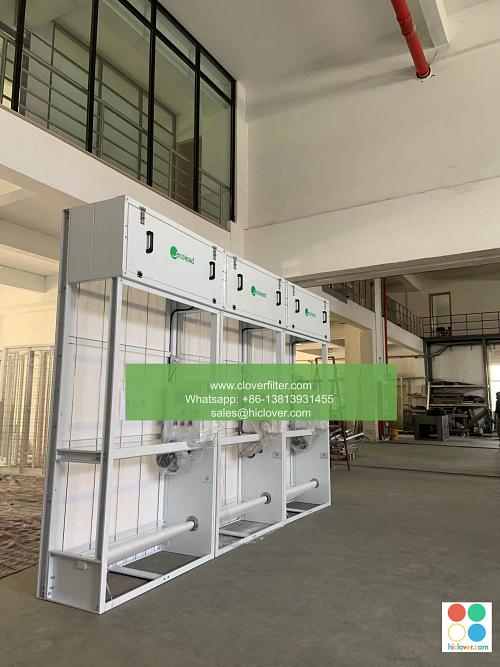The Role of Air Filtration in Vaccine Manufacturing: A Quebec City Perspective

The vaccine manufacturing industry is a complex and highly regulated field that requires meticulous attention to detail to ensure the production of safe and effective vaccines. One critical aspect of vaccine manufacturing is air filtration, which plays a crucial role in maintaining a clean and controlled environment. In this article, we will explore the importance of air filtration in vaccine manufacturing, with a focus on the Quebec City perspective, and highlight various application areas where air filtration systems are essential.
Introduction to Vaccine Manufacturing
Vaccine manufacturing involves the production of biological products that are used to prevent and treat diseases. The process involves several stages, including cell culture and fermentation, purification and formulation, and filling and packaging. Each stage requires a high level of control and precision to ensure that the final product meets the required standards of quality and safety.
Air Filtration in Vaccine Manufacturing
Air filtration is a critical component of vaccine manufacturing, as it helps to remove contaminants and particles from the air that could potentially compromise the quality of the vaccine. HEPA filters and ULPA filters are commonly used in vaccine manufacturing facilities to achieve high levels of air cleanliness. These filters are designed to capture 99.97% of particles as small as 0.3 microns, including bacteria, viruses, and other microorganisms that could contaminate the vaccine.
Application Areas of Air Filtration in Vaccine Manufacturing
Air filtration systems are used in various application areas of vaccine manufacturing, including:
* Cleanrooms: Cleanrooms are controlled environments that are designed to minimize the introduction of contaminants. Air filtration systems are used to maintain a clean and controlled environment in cleanrooms, where vaccine production takes place.
* Fermentation and cell culture: Air filtration systems are used to provide a sterile environment for fermentation and cell culture, where microorganisms are grown to produce the vaccine.
* Purification and formulation: Air filtration systems are used to remove contaminants and particles from the air during the purification and formulation stages of vaccine production.
* Fill and finish: Air filtration systems are used to maintain a clean and controlled environment during the filling and packaging stages of vaccine production.
Benefits of Air Filtration in Vaccine Manufacturing
The use of air filtration systems in vaccine manufacturing offers several benefits, including:
* Improved product quality: Air filtration systems help to remove contaminants and particles from the air, which can compromise the quality of the vaccine.
* Reduced risk of contamination: Air filtration systems reduce the risk of contamination, which can lead to product recalls and financial losses.
* Increased efficiency: Air filtration systems can help to increase efficiency by reducing the need for rework and minimizing downtime.
* Compliance with regulatory requirements: Air filtration systems can help vaccine manufacturers to comply with regulatory requirements, such as those set by the FDA and EMA.
Conclusion
In conclusion, air filtration plays a critical role in vaccine manufacturing, particularly in Quebec City, where several vaccine manufacturers are located. The use of air filtration systems in various application areas of vaccine manufacturing, including cleanrooms, fermentation and cell culture, purification and formulation, and fill and finish, helps to maintain a clean and controlled environment, remove contaminants and particles, and ensure the production of safe and effective vaccines. By highlighting various application areas and emphasizing the importance of air filtration, vaccine manufacturers can ensure compliance with regulatory requirements and produce high-quality vaccines that meet the needs of patients around the world.

